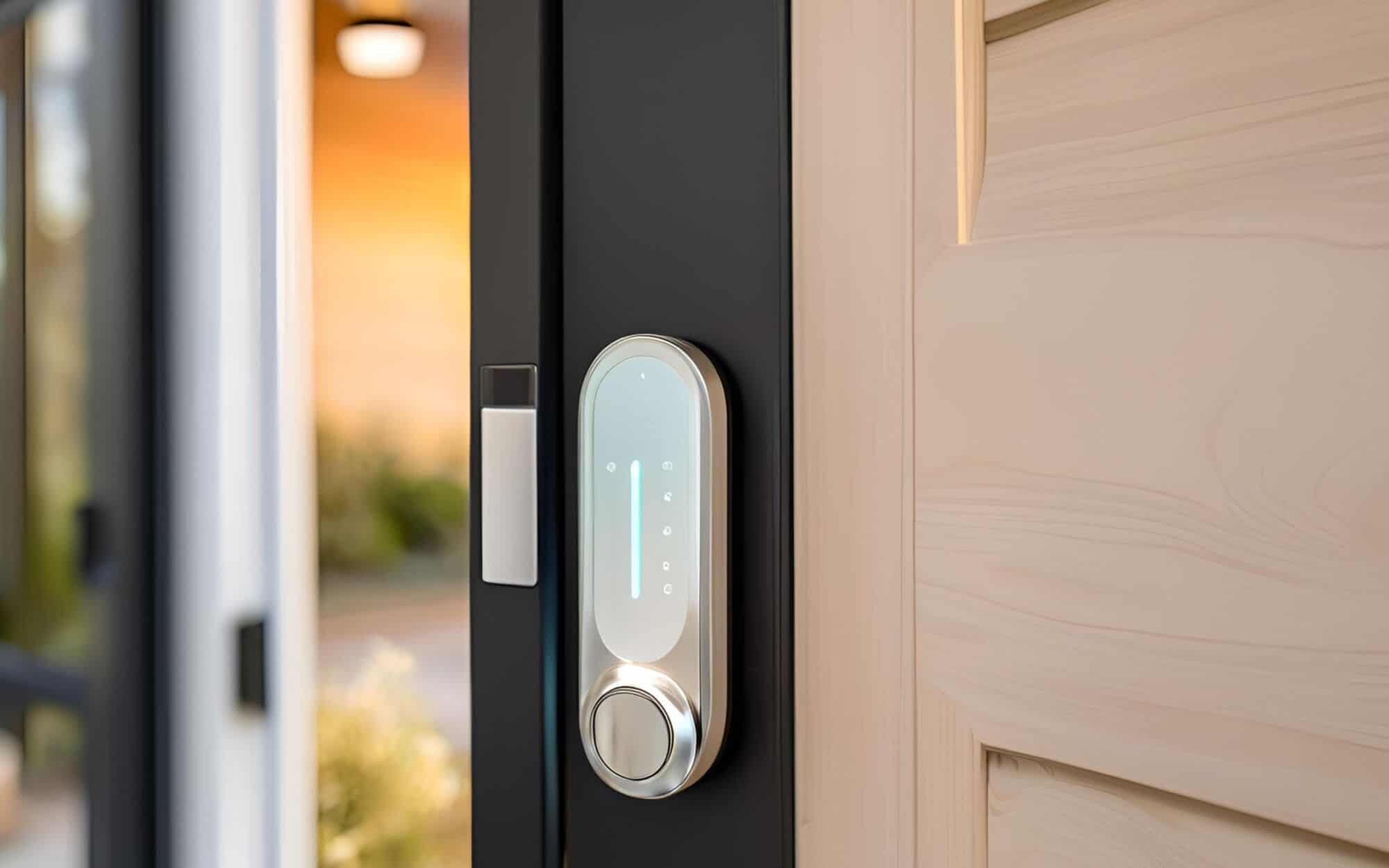Unlocking the Potential of Smart Locks
As more people look for smarter, safer homes, smart locks are becoming a key player. Ever wondered how these locks seamlessly connect with your home’s smart devices or why they’re considered safer than regular locks? Let’s explore the booming smart lock market and what it means to make our homes more secure and convenient.
Smart locks offer the convenience of keyless entry while using the latest technology to keep your home safer. But how do they stack up against traditional locks? And what could this mean for the future of home security? By looking at how smart locks work, their advanced security features, and how they connect with other smart devices, we’ll give you a clear and easy guide to improving your home’s security and automation system.
The Evolution and Technology Behind Smart Locks
Smart locks are a major step forward from traditional locks, thanks to their use of advanced technology and user-friendly features. The main idea behind smart locks is keyless entry—letting you unlock doors with your smartphone, fingerprint, or even voice commands. This shift not only makes life more convenient but also enhances security, as digital keys are much harder to duplicate than physical ones.
The smart lock market is growing fast, driven by the advances in IoT and connectivity. New smart locks now offer real-time monitoring, so homeowners can see exactly who enters their home and when. They also work well with home automation systems like Google Home or Amazon Alexa, letting you control your locks with just your voice. Plus, these locks can talk to other smart devices like turning on the lights when you unlock the door, adding more convenience and security to your home.
The Convenience Factor: Integrating Smart Locks into Daily Life
Smart locks go beyond just locking and unlocking doors—they completely change how we interact with our spaces. One of their key advantages is the ability to grant temporary access to guests or service providers without needing to hand over a physical key. This is especially useful for property rental owners who need to manage access from afar. Plus, the ease of installation and maintenance makes them even more convenient, with many smart locks offering DIY setups that don’t require professional installation.
- Ease of Use: Users can unlock their doors remotely using their mobile devices.
- Flexibility: Temporary access can be granted to visitors without physical keys.
- Integration: Seamless compatibility with existing home automation systems enhances user experience.
The ease of installation and maintenance is a big selling point for smart locks, making them more accessible to homeowners curious about smart home technology. Most smart locks are built to fit standard doors, so switching from traditional locks is usually simple. Maintenance is also minimal, often only needing battery changes or the occasional software update to keep everything running smoothly. This lowers the entry barrier, making smart home upgrades more attainable for everyone.
Security Meets Innovation: How Smart Locks Enhance Home Safety
When it comes to security, smart locks have advantages that traditional locks just can’t match. They use encryption technology to keep digital keys and entry logs safe, reducing the risk of unauthorised access. Many smart locks also come with built-in alarms that go off if someone tries to force entry or tamper with the lock, adding an extra layer of protection. These features make smart locks a strong choice for boosting home security.
Consumer trust in smart lock security is growing, largely due to its strong security features. However, opinions still differ, and educating people on the benefits of smart locks is essential. Helping consumers understand how advanced encryption works and why digital keys can’t be easily duplicated can go a long way in easing concerns about potential security breaches. Ongoing education is crucial for building confidence in these devices.

Smart Locks and the Future of Home Automation
Looking towards the future, the smart lock industry is set for even more innovative breakthroughs. By 2030, AI and machine learning are expected to revolutionise smart locks further. These technologies could enable locks to recognize familiar faces or even detect unusual behaviour patterns, adding a new level of security and personalization.
However, with great innovation comes great challenges. One of the potential issues could be the increased complexity of managing data privacy and security in an era where locks are not just mechanical devices but data points within a connected home ecosystem. The smarter these devices get, the more crucial it is to have strong cybersecurity measures in place to protect against potential breaches and ensure user privacy.
Wrapping Up: The Smart Lock Revolution
The evolution of smart locks from traditional mechanisms to sophisticated, integrated components of home automation systems marks a significant step in enhancing both convenience and security. By eliminating physical keys, smart locks reduce the risk of unauthorised access and seamlessly integrate with modern home technologies. They offer real-time monitoring and control, making it easy to manage home security. Features like granting temporary access and straightforward installation further transform the way homeowners protect and interact with their homes, providing flexibility and ease of use.
Looking ahead, the integration of AI and machine learning in smart locks promises even more personalised and secure solutions. Yet, this advancement brings challenges, especially in data privacy and cybersecurity. As smart locks become more prevalent, strong security measures will be crucial. The transition from traditional locks to smart home security shows how technology can enhance safety and convenience. So, isn’t it time we fully embrace the potential of smart home technology?